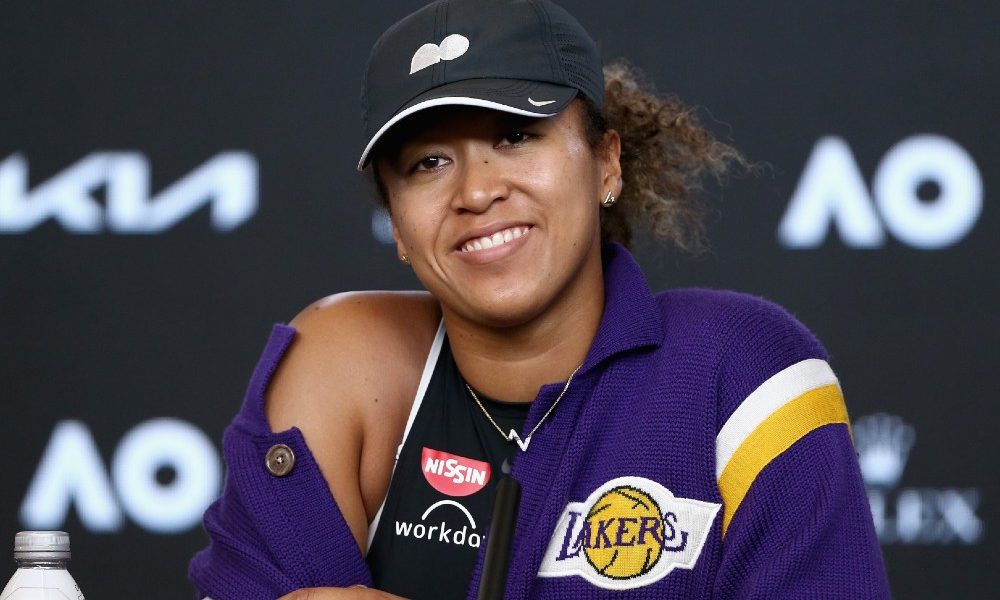After Naomi Osaka’s withdrawal from the French Open, the debate about press conferences keeps cropping up. Pressers have been analyzed from more angles than Rafa’s forehand or Serena’s backhand. Players, both active and retired, have weighed in with their opinions, along with coaches and sports therapists. The consensus is that tennis reporters are insensitive, disrespectful, sexist, racist, and eager to provoke controversy.
The constant threat of illness, the absence of fans, the isolation, and loss of income has certainly added to impatience with reporters. Venus Williams tartly suggested she maintained her composure during interviews by realizing she could beat any hack in the room; none of them could hold a candle to her.
But this sort of disrespect runs in both directions. While players view reporters as pesky publicity machines, at best, or gossip-hounds at worst, some journalists regard players as spoiled high school dropouts who couldn’t write a grammatically correct paragraph if their endorsement contracts depended on it. With all due deference to Naomi Osaka, I would urge her and her colleagues on the ATP and WTA tours to view things from a different perspective. The coronavirus has wreaked havoc on the press just as it has on them. Plenty of tennis reporters have lost their jobs. Almost all of them earn less income. They face the same risks of infection and submit to enough Covid tests to leave them as red-nosed as Rudolph.
Under the circumstances, reporters who travel the tour, along with those covering matches remotely from their basements, have done a creditable job. Sure, they sometimes sound testy, just as the players do. Of course their questions can be repetitious, just as the players answers can be.
Over the past four decades, I’ve covered more press conferences than I now have white hairs on my head. I’ve heard racist comments, sexist remarks and massively insulting accusations. But more often than not, the putdowns were aimed at reporters or at other players. In the old days, these seldom made it into newspapers, and the really offensive quotes and admissions of rule breaking were deleted from press conference transcripts. In that politically incorrect era, Arthur Ashe, for instance, came in for a raft of prejudice. Ilie Nastase openly referred to him as negroni.
Although it’s now largely forgotten, Billie Jean King’s sexuality was accepted by the press long before many on the women’s tour spoke up in her defense. While male journalists can be appallingly insensitive—Italian Hall of Fame journalist Gianni Clerici used to print Steffi Graf’s menstrual cycle in La Repubblica—it would be difficult to find anything less “woke” than Martina Hingis’ description of Amélie Mauresmo as a “half-man” who “travels with her girlfriend.” Or Lindsay Davenport’s comment after Mauresmo beat her, “I thought I was playing a guy.”
Predictably, both women walked back these quotes, accusing the press of taking their words out of context. That’s an ancient canard on the circuit—shoot off your mouth, then claim you were misquoted. I remember Buster Mottram, then the British Number One, complaining about rowdy fans in Rome, accusing Italians of being animals. At his next press conference he carefully parsed the remark. Suddenly the voice of reason, he observed that human beings were all, anthropologically speaking, animals.
If Buster had won a few majors, his quotes might have been immortalized, like Andre Agassi’s wisecrack at the French Open, “I’m happy as a faggot in a submarine.” That line made the list of Esquire Magazine’s annual Dubious Achievement Awards.
John McEnroe’s infamously objectionable conference quotes could only be contained on a wall as vast as the Vietnam War Memorial. Even if one had the space and energy to chisel them in stone, many would have to be bowdlerized. One that barely passes the censor’s blue pencil is his barbarous backhand at a female reporter who had the impertinence to question him. “Lady, you need to get laid.”
In some cases actions speak louder and more loathsome than words. After a match in Milan, a local female journalist asked Jimmy Connors, “Why do you always touch yourself in a particular place?” Jimmy shoved a hand down his shorts and gave his genitals a good shake. “It feels good. You should try it.”
To repeat, I empathize with Naomi Osaka’s aversion to press conferences. More than she might imagine I agree that they can be frustrating, stress producing, depressing, and borderline transgressive. I accept the sage advice of deep-think editorials and socially conscious scribes that reporters need to raise the level of their game. But so do players who could profit from sensitivity training, anger management, and basic etiquette lessons. With mutual respect for all those who share a rough road toward an uncertain future, the tour could become a better place for everybody.
Michael Mewshaw is the author of 22 books, among them AD IN AD OUT, a collection of his tennis articles, now available as an e-book.






